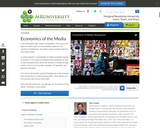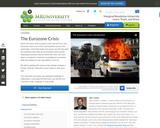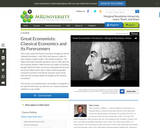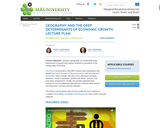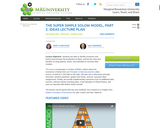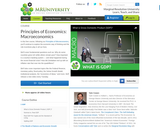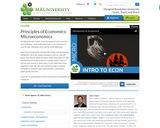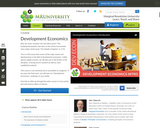
Why are some countries rich and others poor? This fundamental question has been on the mind of economists since Adam Smith wrote "The Wealth of Nations" in 1776. This is a full course that covers all the major issues and developments in the field of development economics. Unlike typical college courses, we will take you to the frontier of the discipline, covering recent research as well as more established material. This course is non-technical and is accessible to a beginner. If you pass the final exam, you will earn our "Development Economics" certificate on your profile.
- Subject:
- Economics
- Social Science
- Material Type:
- Full Course
- Provider:
- Marginal Revolution University
- Author:
- Alex Tabarrok
- Tyler Cowen
- Date Added:
- 05/18/2017

